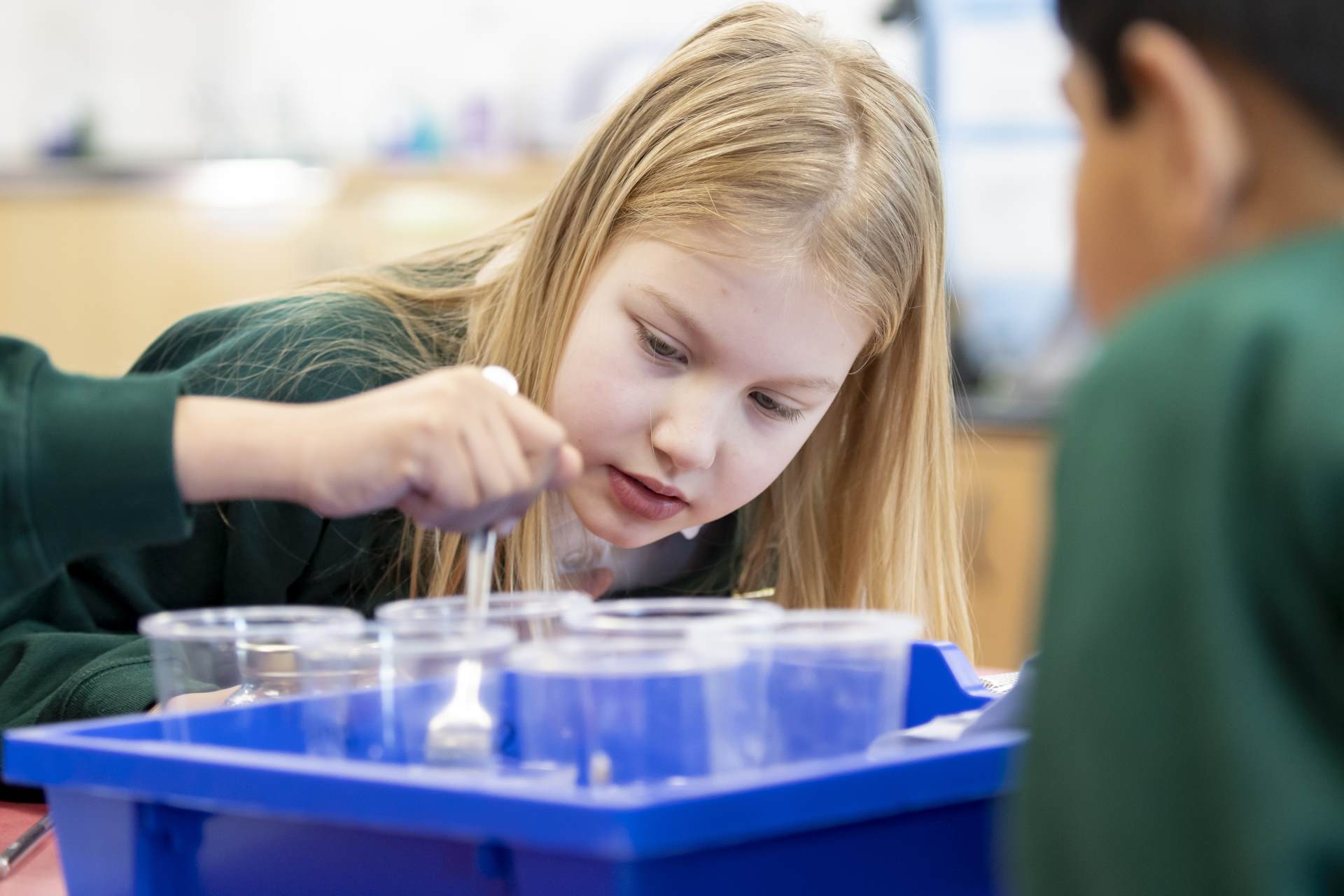Science Intent, Implementation & Impact


Intent
At Ferrars Junior School, our children are SCIENTISTS. Our intent is to give every child a broad and balanced Science curriculum which enables them to confidently explore and discover what is around them, so that they have a deeper understanding of the world they live in. We endeavour to instil the passion for science in our children in a curriculum of exciting lessons where they learn through the different enquiry types both in and out of the classroom. We want them to have no limits to what their ambitions are and grow up wanting to be astronauts, environmental scientists, forensic scientists, vets or microbiologists. We want our children to remember their science lessons in our school, to cherish these memories and embrace the scientific opportunities they are presented with.
To achieve this, we deliver exciting, practical hands on experiences that encourage curiosity and questioning through different inquiry types. Our aim is that these stimulating and challenging experiences help every child secure and extend their scientific knowledge and vocabulary, as well as promoting a love and thirst for learning. At Ferrars, we have a coherently planned and sequenced curriculum which has been carefully designed and developed with the need of every child at the centre of what we do. We want to equip our children with not only the minimum statutory requirements of the science National Curriculum but to prepare them for the opportunities, responsibilities and experiences of later life. They should have a good knowledge of the different skills required to be successful in science, supported by a firm understanding of key subject knowledge of scientific facts. Finally, they should understand how science affects their everyday lives.
Implementation
At Ferrars, Science topics are taught within each year group in accordance with the National Curriculum.
- Topics are blocked to allow children to focus on developing their knowledge and skills, studying each topic in depth.
- Children are taught science in standalone lessons that develop their skills and knowledge by building on prior learning, introduce appropriate next steps and are directed by pupils’ questions.
- Every year group will build upon the learning from prior year groups therefore developing depth of understanding and progression of skills.
- Children explore, question, predict, plan, carry out investigations and observations as well as conclude their findings.
- Children present their findings and learning using science specific language, observations and diagrams.
- In order to support children in their ability to ‘know more and remember more’ there are regular opportunities to review the learning that has taken place in previous topics as well as previous lessons.
- At the start of each topic children will review previous learning and will have the opportunity to share what they already know about a current topic.
- Pupils are regularly given the opportunity for self or peer assessment, which will then be used to inform planning, preparation, differentiation and address misconceptions within that lesson, or for the next lesson.
- Cross-curricular links are planned for, with other subjects such as Maths, English and Computing.( eg: Data collection presented through graphs etc)
- The science capital of the school is developed through trips, clubs, visitors, science council and clear links across the curriculum.
- Pupils have an opportunity to direct learning in lessons through questioning and within the school via pupil voice on the science council.
- In each lesson, curiosity is fostered and skills are developed by the use of any of the six enquiry types.
- Children have the opportunity to discover independently and share their learning in a variety of ways.
- Staff and children know what learning is being developed, what prior knowledge this is building on and what the next step in learning will be: this ensures a progression of skills and knowledge from KS1 though KS2 into KS3.
Impact
The impact of this curriculum design will lead to:
- Noticeable progress over time, across key stages, relative to a child’s individual starting point and their progression of skills.
- Children being expected to leave Ferrars reaching at least age related expectations for Science.
- Pupils being enthusiastic Science learners and understand that science has changed our lives and that it is vital to the world’s future prosperity.
- Empowering our children so they understand they have the capability to change the world.
We will monitor the impact by scrutinising and supporting the planning process, assessing and recording the information on our electronic tracking system DcPro, learning walks, book looks and speaking to children and teachers.
We firmly believe that a meaningful Science curriculum is the key to children becoming confident, knowledgeable and well-informed adults who understand the opportunities and benefits of science, as well as how to be a critical thinker.








